If you’re on the journey of taking your music to the next level, you’ve probably come across the term “mastering engineer.”
It’s one of those phrases thrown around in the industry that can seem a bit elusive.
So, what is a mastering engineer, why are they so important, and how can they add value to your music?
Well, in today’s article, we’re diving deep into the world of mastering engineers.
From their responsibilities and techniques to the remarkable advantages they offer, we’ll unravel the mystery surrounding this essential role in the music production process.
Here’s a quick rundown of what we’ll cover:
- What a mastering engineer actually does ✓
- Why mastering is so important ✓
- The impact of a professional master ✓
- Key mastering techniques, tricks, and tips ✓
- The magic of mastering in all its glory ✓
- The pros & cons of DIY mastering vs. hiring a professional ✓
- Essential advantages of collaborating with mastering engineers ✓
- Choosing the right mastering engineer for your unique style ✓
With this knowledge under your belt, you’ll be able to make the best decisions for your music and your career in this exhilarating industry.
So, let’s dive in…
Table of Contents
- What is a Mastering Engineer?
- The Role of Mastering Engineers
- The Journey to Becoming a Professional Mastering Engineer
- A Glimpse Into a Mastering Engineer’s Career
- Mastering Services Offered by Professional Studios
- The Mastering Process at Work
- Mastering Engineers & Mixing Engineers: What’s the Difference?
- World-Class Mastering Skills that Set the Pros Apart
- The Magic of Audio Mastering
- DIY vs. Hiring a Professional Mastering Engineer
- Key Advantages of Collaborating with Mastering Engineers
- How to Choose the Right Mastering Engineer for You
- Mastering Engineer: Final Thoughts
What is a Mastering Engineer?
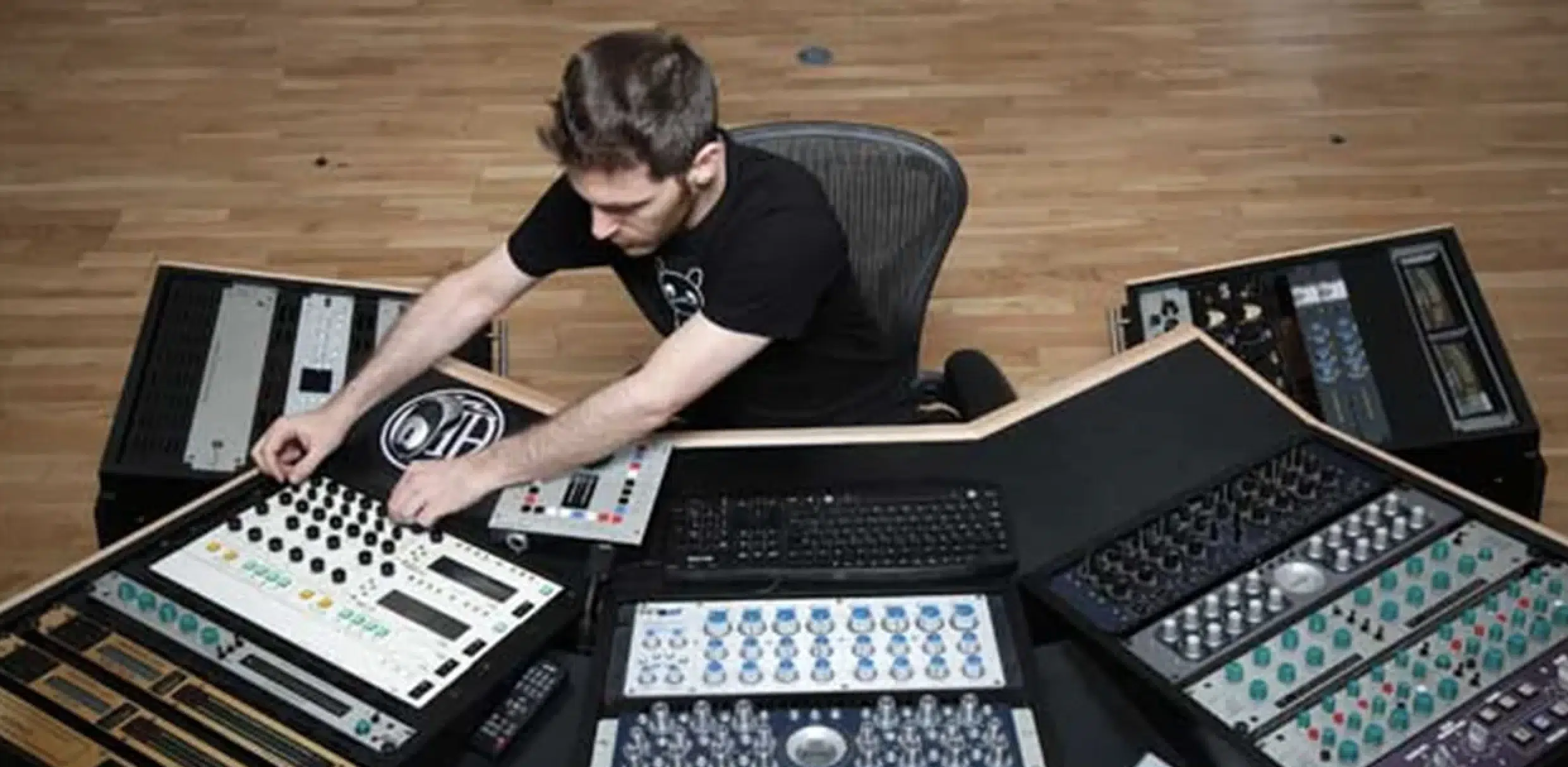
To the untrained ear, a song is just a song.
But to us producers, and to mastering engineers, a song is a meticulously crafted soundscape.
Our job is to create and mix these epic sounds, and the mastering engineer’s job is to ensure that the final product is consistent, balanced, and ready to be enjoyed on any playback system.
This process, however, is no easy task.
While we are in the business of creating music, mastering engineers are in the business of making sure our music sounds its best, everywhere.
Mastering engineers are the ones who give our tracks the punch, clarity, and spark that make them stand out on the radio, on Spotify playlists, and in the listeners’ ears.
It’s often said that an album is only as good as its worst track…
Well, it’s the mastering engineer’s responsibility to ensure there is no “worst track.”
They balance the levels, the EQ, and the overall sound of all the tracks in an album 一 creating a uniform listening experience that carries the listener from start to finish.
The Role of Mastering Engineers
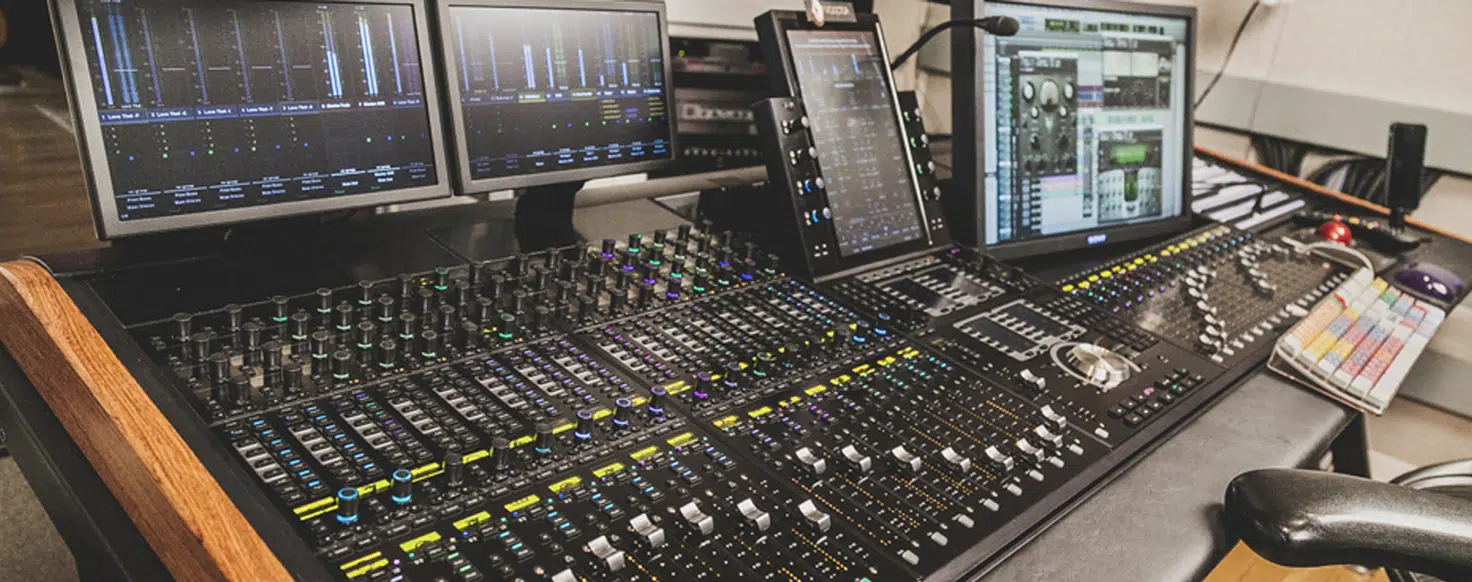
At its core, the role of a mastering engineer is to serve the music.
They take a mix, the combination of all the recorded music elements, and work on it until it becomes a polished track.
This polishing process involves many technical tasks 一 equalization, compression, limiting, stereo enhancement 一 but at the end of the day, their goal is to make your music sound its best.
Mastering is not just an art form, it’s a science.
A mastering engineer uses their trained ears to detect any issues that need to be addressed in a mix, and then uses their technical skills and equipment to correct these issues.
It’s a delicate balance between preserving the artist’s vision and ensuring the highest audio quality.
With mastering, the devil is truly in the details; subtle adjustments can make a huge difference in the overall sound of a track.
It’s the mastering engineer’s job to hear these subtleties and to tweak them for the best possible outcome.
The Journey to Becoming a Professional Mastering Engineer
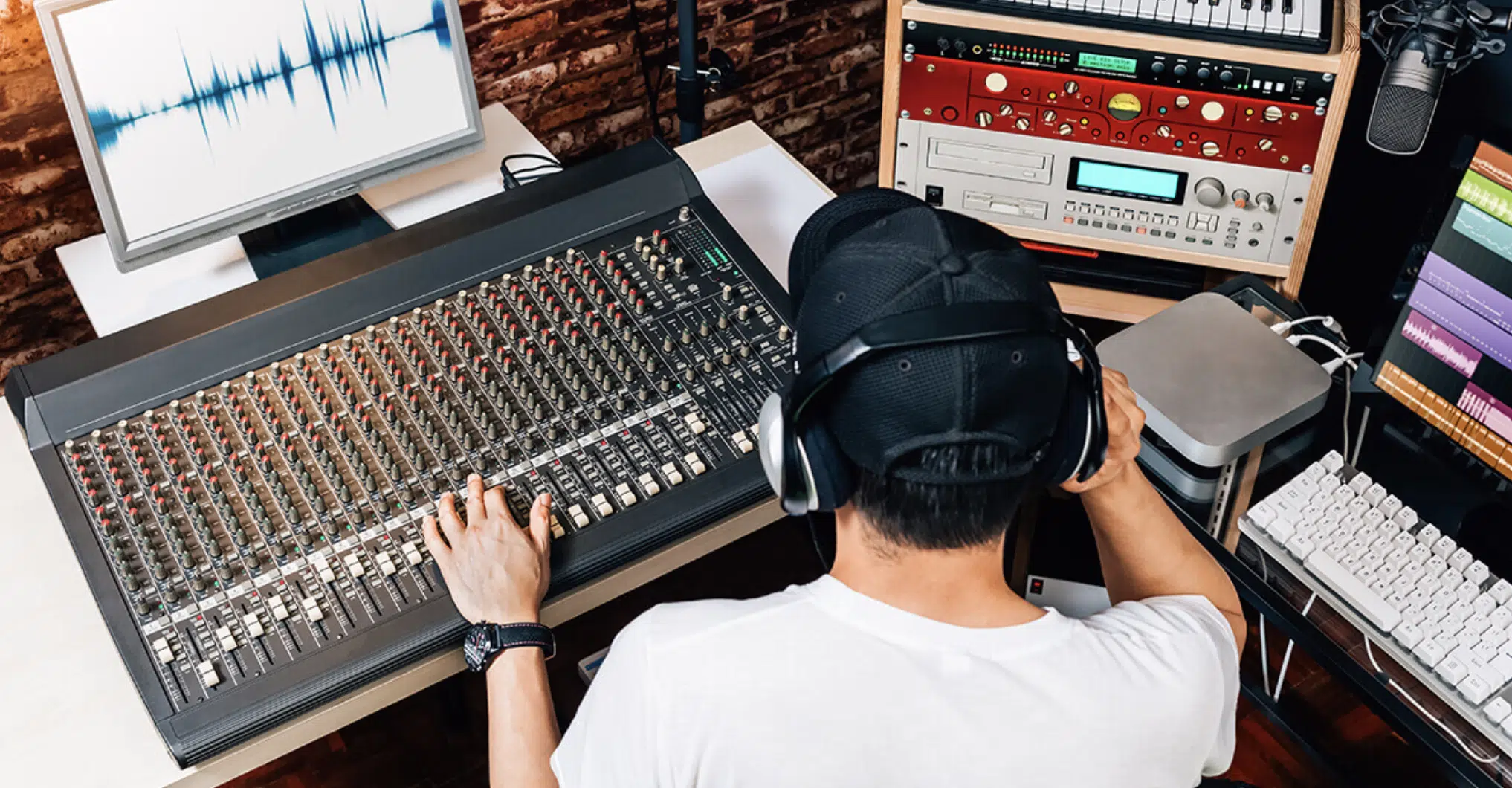
If you’re drawn to the technical side of music production and are considering becoming a mastering engineer, there are certain skills you’ll need to develop.
#1. A Deep Understanding of Audio Technology
This includes:
- Hardware 一 like outboard gear and monitors
- Software 一 like DAWs and plug ins
Knowing these tools like the back of their hands is crucial for a mastering engineer, as it’s all they use.
#2. A Discerning Ear
The ability to pick up on minute details in the mix, identify imbalances or issues, and know how to correct them is essential.
A mastering engineer’s ears are their most valuable tool.
Years of experience and practice fine-tune this skill, enabling them to identify what’s needed to make a track shine.
#3. Great Patience
A mastering engineer’s job often entails listening to the same track over and over again while making tiny adjustments each time.
It requires a level of precision and an eye for detail that few possess.
Mastering engineers must be methodical and meticulous 一 constantly striving for perfection.
#4. A Broad Understanding of Various Music Genres
Different genres have different sonic characteristics and listener expectations.
The punchy and bass-heavy sound of a hip-hop track requires a different mastering approach compared to a classical orchestral piece.
An effective mastering engineer appreciates these differences and knows how to handle them.
A Glimpse Into a Mastering Engineer’s Career
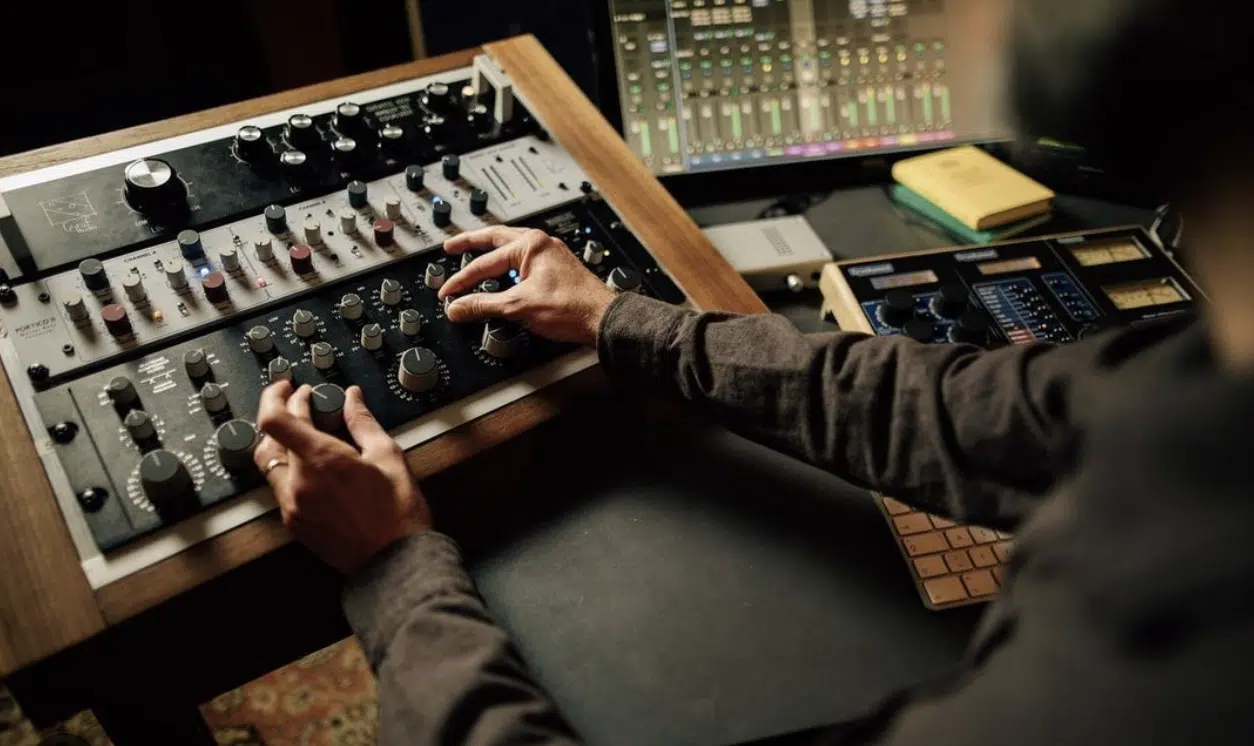
The career path of a mastering engineer can vary widely.
Some begin in small local studios, learning the ropes under the tutelage of seasoned professionals.
Others may kickstart their careers through internships or assistant roles at larger studios.
It’s also common for aspiring mastering engineers to get their start by offering their services to local bands and independent artists.
This way, they gain valuable experience and gradually build a professional portfolio.
These engineers work on a diverse range of projects, honing their skills across different genres and styles.
Mastering engineers like Bernie Grundman, Bob Ludwig, and Emily Lazar have reached the pinnacle of the profession, working with some of the biggest names in music.
Their careers underscore the opportunities available in this field, with their influence felt across a broad spectrum of chart-topping hits and critically acclaimed albums.
Mastering Services Offered by Professional Studios
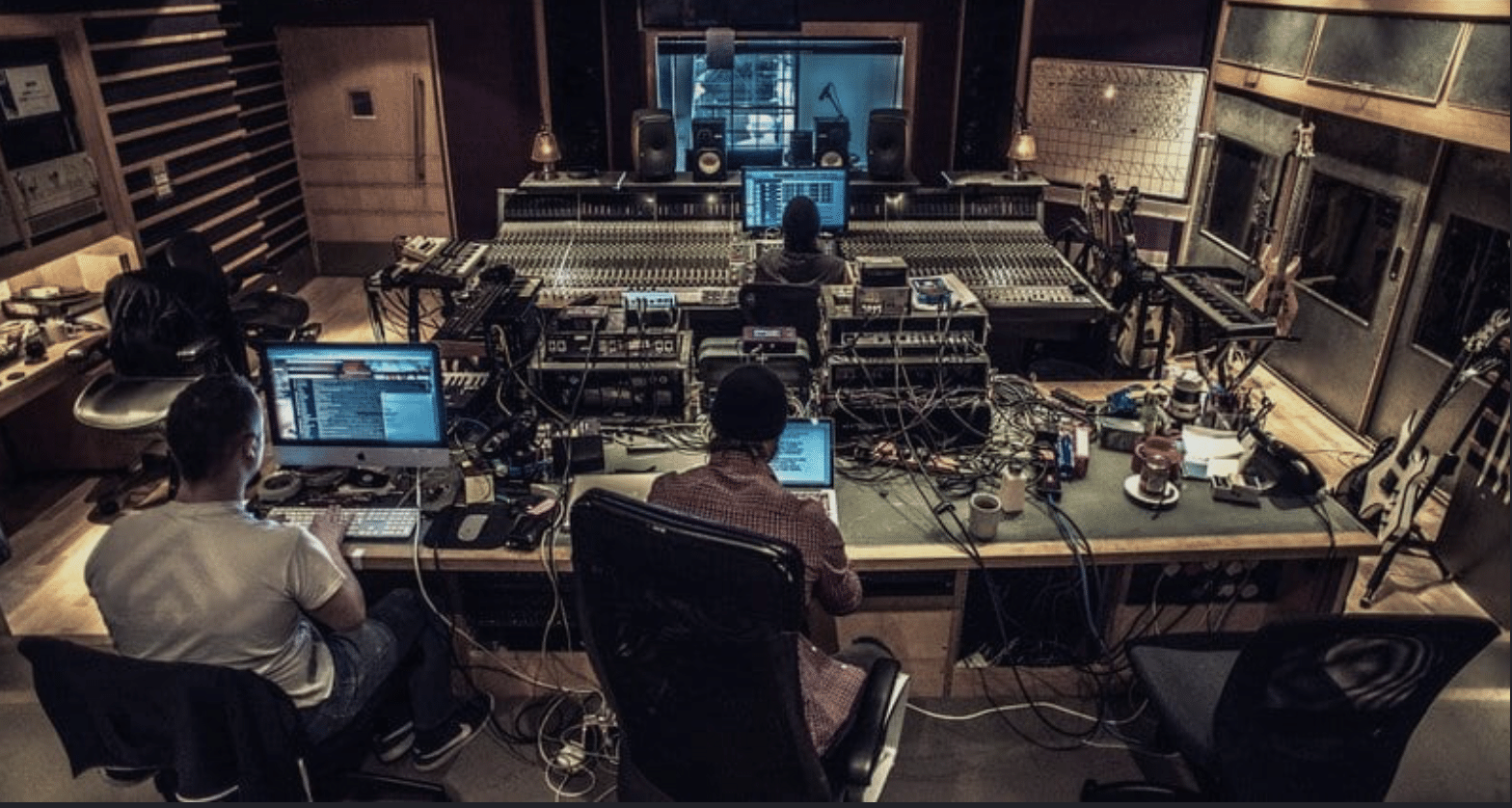
Entering a professional mastering studio, you’re welcomed into a finely-tuned environment designed for one purpose: to create the best possible final versions of musical tracks.
Studios offer a range of mastering services to prepare your music for different formats 一 whether it’s for digital platforms, CDs, or vinyl records.
Many studios extend their services beyond the conventional. They offer assistance with:
- DDP creation for CD replication
- ISRC code embedding
- Vinyl cutting
These services ensure that your music is not only sonically impressive but is also correctly formatted and identifiable across distribution platforms.
Some mastering studios also provide mix evaluation services.
These services involve providing constructive feedback on a mix before the mastering stage, helping to identify potential improvements.
This can be an invaluable service, particularly for less experienced producers or self-producing artists.
The Mastering Process at Work
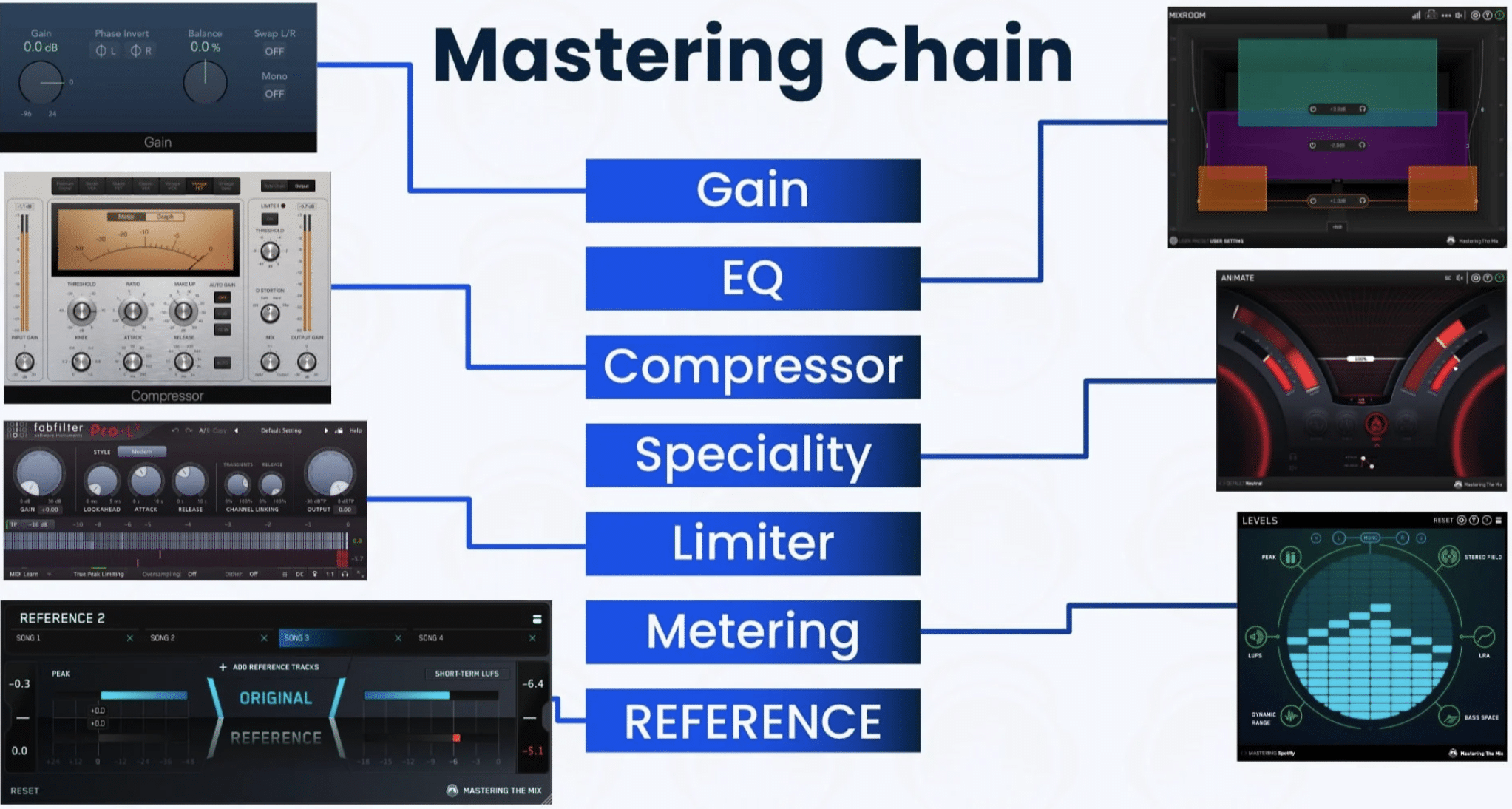
The mastering process is often seen as a form of alchemy; transforming the raw, mixed track into a polished musical masterpiece.
A typical mastering session begins with critical listening, where the engineer assesses the mix, pinpoints any issues, and outlines a plan of action.
The engineer will then use a series of audio tools and techniques to address the identified issues and enhance the mix.
- Equalization 一 To balance the frequencies
- Compression 一 To control the dynamics
- Limiting 一 To set the maximum loudness
- Stereo enhancement 一 To create a wider soundstage
The process is iterative, with the engineer frequently referencing the original mix and making subtle adjustments until the desired sound is achieved.
It’s a delicate dance between technical precision and creative intuition, resulting in a track that resonates with listeners and is ready for distribution.
It’s worth noting that a skilled mastering engineer knows when not to overprocess a track.
There’s a saying in the industry, “Less is more,” and this couldn’t be truer for mastering.
The goal is not to alter the mix significantly but to enhance and optimize it.
NOTE: Over-processing can lead to a loss of dynamics and can make the track sound over-compressed or “lifeless.”
Mastering Engineers & Mixing Engineers: What’s the Difference?
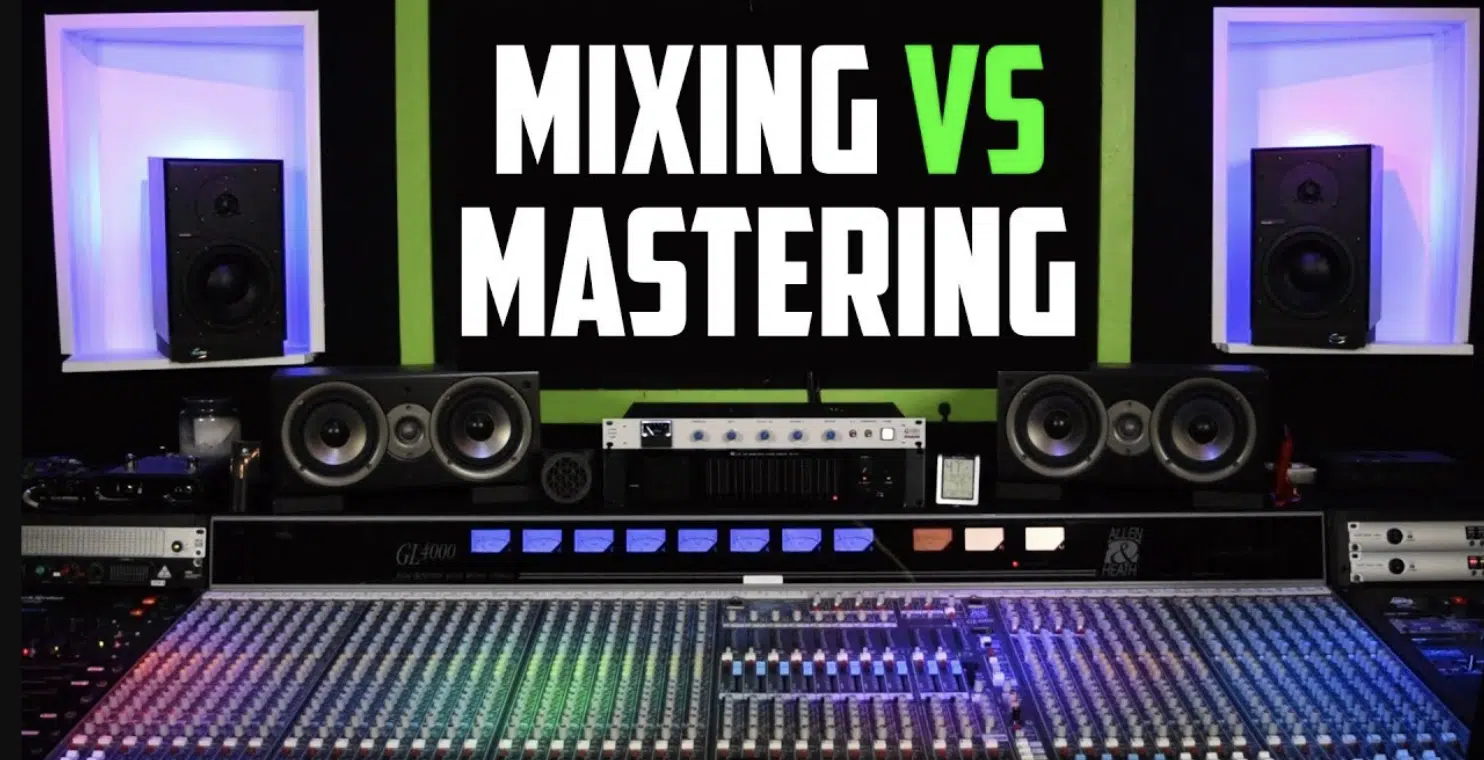
To truly grasp the importance of a mastering engineer, it’s essential to differentiate them from mixing engineers.
While these roles may seem similar at first glance, they have distinct responsibilities within the music production process.
Generally speaking, a mixing engineer works on individual tracks of a song, adjusting levels, setting EQ, and applying effects to each part.
They strive to create a balanced mix, where all the elements of a song (vocals, instruments, synths, etc.) harmonize to create a cohesive sound.
A mastering engineer, on the other hand, comes in after the mixing process.
They take the final mix and enhance it, making minute adjustments to the sound’s overall EQ, compression, and stereo width.
The goal here is to ensure the track sounds polished and professional, no matter what device it’s played on.
Despite these being separate stages in music production, both mixing and mastering play crucial roles in shaping the final sound of a song or album.
- The Mix engineer 一 Ensures all the musical components work together harmoniously, creating the song’s overall feel and emotional depth.
- The Mastering engineer 一 Adds the finishing touches; further enhancing the sound quality and ensuring the track or album is consistent and well balanced across all audio playback devices.
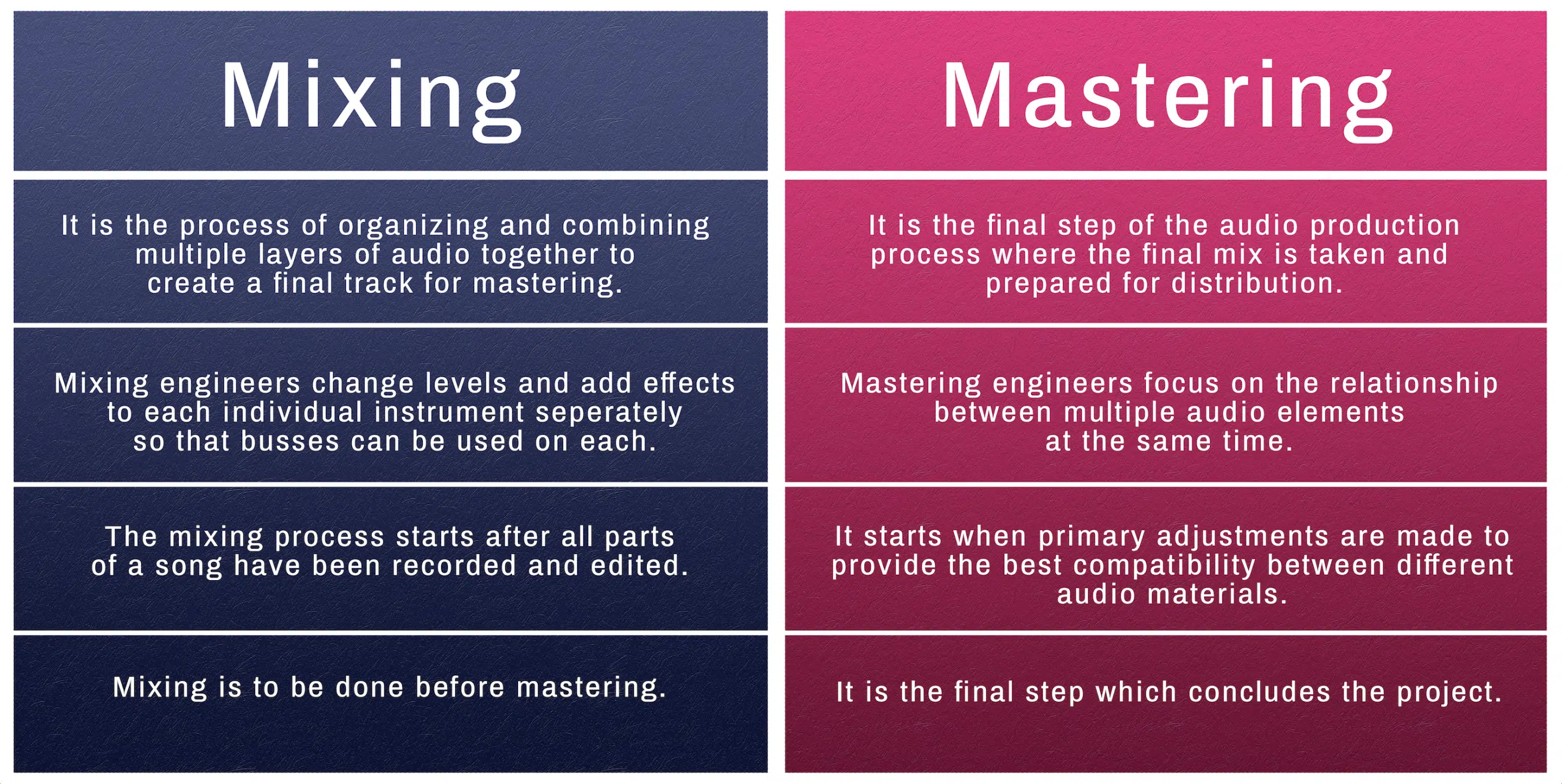
It’s the mastering engineer’s world class mastering skills that give a track its ‘radio-ready’ shine.
In essence, a mixing engineer sculpts the details, and the mastering engineer polishes the sculpture, ensuring it’s viewed optimally in every light.
Both roles are pivotal in delivering a high-quality, professional audio product.
Knowing their differences can help you appreciate the importance and value of a mastering engineer even more.
World-Class Mastering Skills that Set the Pros Apart
Now that you have a firm understanding of what a mastering engineer does, let’s break down what sets professional mastering engineers apart from inexperienced mastering engineers.
-
The Technical Expertise of Top Mastering Engineers
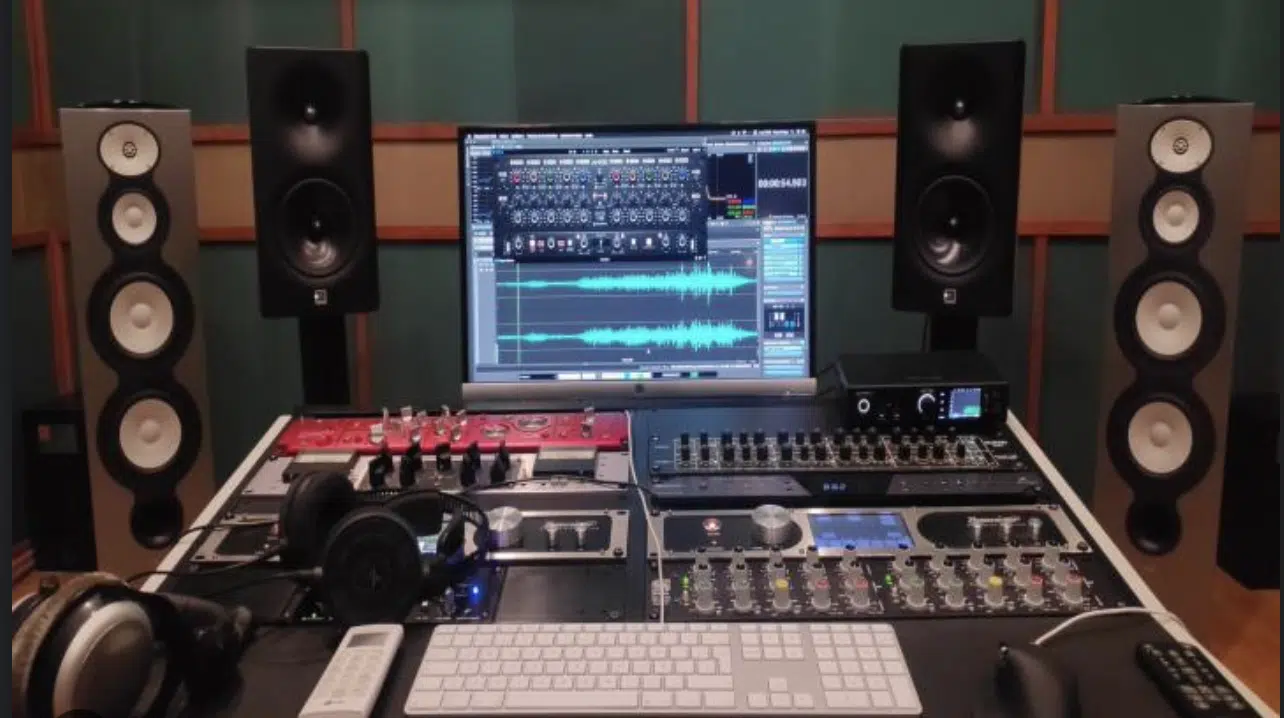
While the ability to listen is a critical skill, it needs to be complemented by robust technical knowledge.
Mastering engineers need to understand the ins and outs of their equipment 一 from the intricacies of their analog gear to the subtleties of their digital tools.
World-class mastering engineers have an intimate understanding of the mastering chain and how each piece of equipment impacts the sound.
This includes not only knowing how to use each tool but also why to use it and when.
This level of expertise can only come from years of hands-on experience.
Furthermore, understanding the technical standards of different playback systems and distribution formats is crucial.
A great mastering engineer ensures that the mastered track sounds excellent, whether it’s being played in a high-end sound system or through a pair of budget earbuds.
A top-tier mastering engineer also never stops learning.
They stay updated with the latest trends, techniques, and technologies in the audio industry.
By doing so, they ensure that they can always deliver the best possible results, no matter how the industry evolves.
-
Audio Engineering Techniques that Make the Difference

Mastering engineers have a toolbox of audio engineering techniques that they use to sculpt the sound of a track.
One common tool is the equalizer (EQ), which adjusts the balance of different frequencies.
For instance, an engineer might cut certain frequencies to reduce muddiness or boost others to bring out particular elements of the mix.
Dynamic processing tools, like compressors and limiters, are also vital.
These are used to control the loudness of the track, ensuring a consistent volume and preventing any unexpected peaks that could lead to distortion.
These tools also help in creating a more balanced and cohesive sound across an album.
Finally, stereo enhancement tools can be used to widen or narrow the stereo image of a track.
This helps in creating a sense of space in the mix and can make the track feel more immersive.
However, as an audio engineer, these tools must be used sparingly and carefully, as overuse can lead to mixes that sounds unnatural.
The Magic of Audio Mastering
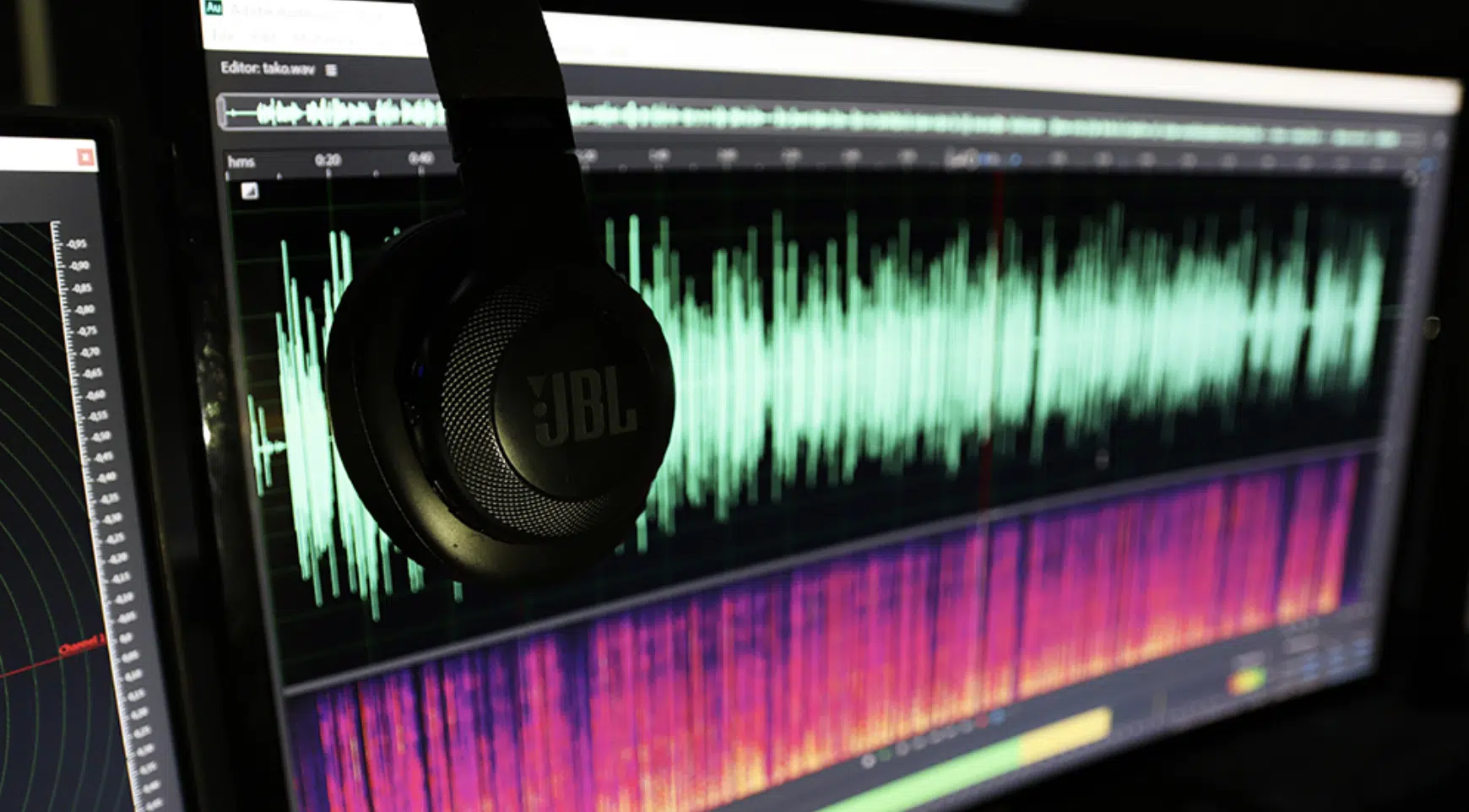
The impact of professional mastering on your tracks cannot be overstated.
It provides the final polish that makes your music ready to release to the public.
A well-mastered track has a richness and depth that can captivate listeners and elevate the overall listening experience.
Mastering also ensures consistency across all tracks on an album or EP.
The tracks won’t just sound good individually, but they’ll flow together seamlessly.
Listeners won’t need to adjust their volume knob between songs, and the overall sonic character of the album will remain consistent.
I’m sure you’ve heard an album where one song sounds flawless, and then the next one sounds like absolute trash…
That was because they didn’t have a good mastering engineer, regardless of how good/bad the recording was.
Also, mastering ensures that your music translates well across various playback systems, from high-end speakers to earbuds.
This compatibility is crucial in today’s digital age, where your music can be played on countless different devices.
DIY vs. Hiring a Professional Mastering Engineer
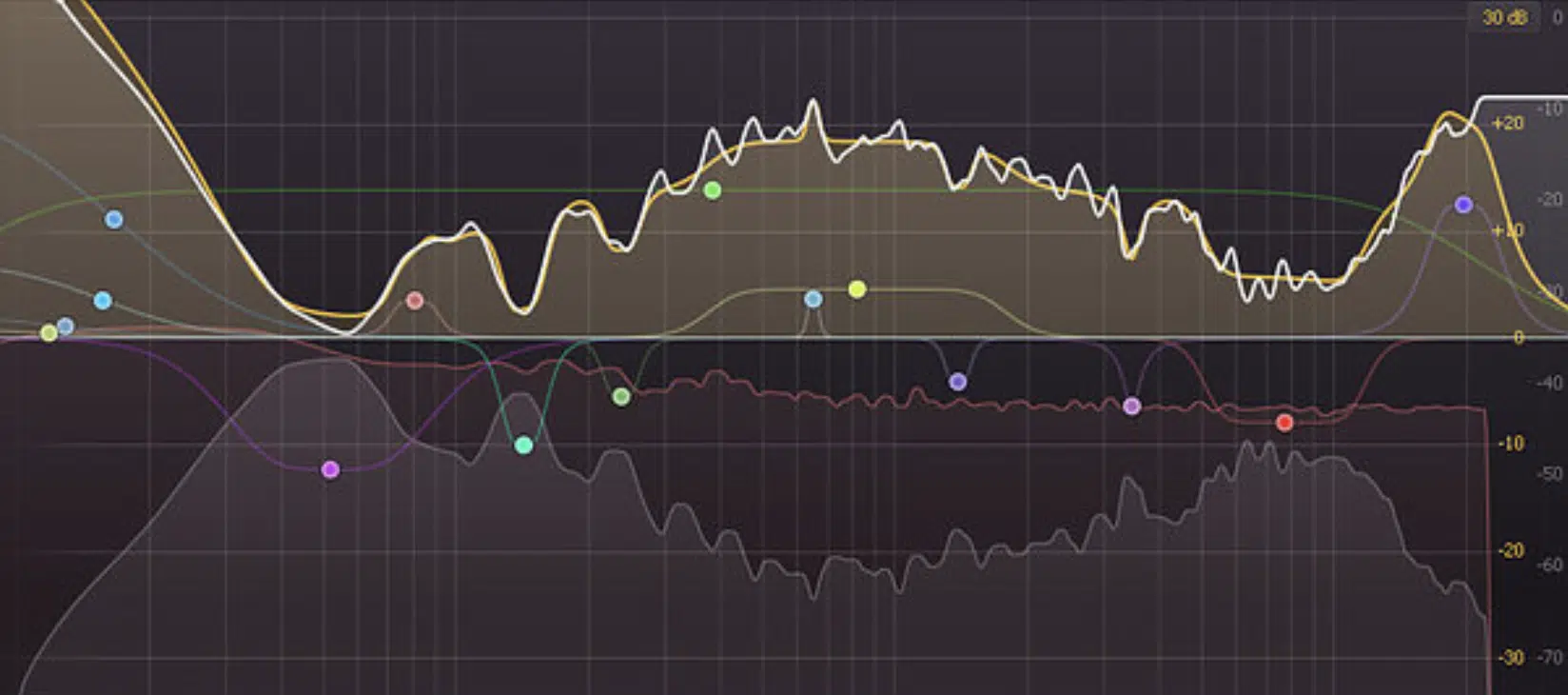
Advancements in technology has made it possible for you, as a music producer, to perform your own mastering duties in your home studio.
One of the significant advantages of this approach is the cost.
Mastering at home eliminates the need to hire an external professional, which provides significant cost savings 一 especially for a music producer, artist, or bands on a tight budget.
DIY mastering also offers you complete creative control over your work.
You’re able to tweak and fine-tune your tracks precisely to your liking without any external influences.
This hands-on experience can also be an excellent learning opportunity, giving insights into the mastering process, which can be valuable for future projects.
Also, home studio mastering allows for flexibility.
Meaning, you can work on your schedule without having to coordinate with an external studio, making it easier to make last-minute changes or revisions.
However, these benefits come with their own set of challenges… One of the primary disadvantages is the steep learning curve.
Mastering is a highly specialized skill that requires years to master fully.
Without formal training or extensive experience, it’s easy to make errors that could potentially ruin the audio quality of a track.
Even with the best software, home studios usually cannot match the high-quality equipment found in professional studios.
High-end analog equipment, advanced digital tools, and specifically designed acoustic environments contribute significantly to the sound quality that professional studios can achieve.
Lastly, the value of an objective, trained ear cannot be understated.
A professional mastering engineer can provide a fresh perspective based on previous clients and catch issues that the artist or producer might overlook due to their close familiarity with the track.
Choosing whether or not to do your own mastering depends on these factors, so think carefully before making a decision.
Think of all the advantages and disadvantages, as well as your own skill set (realistically) to help you choose other mastering engineers.
-
When & Why to Pay for a Pro Mastering Engineer
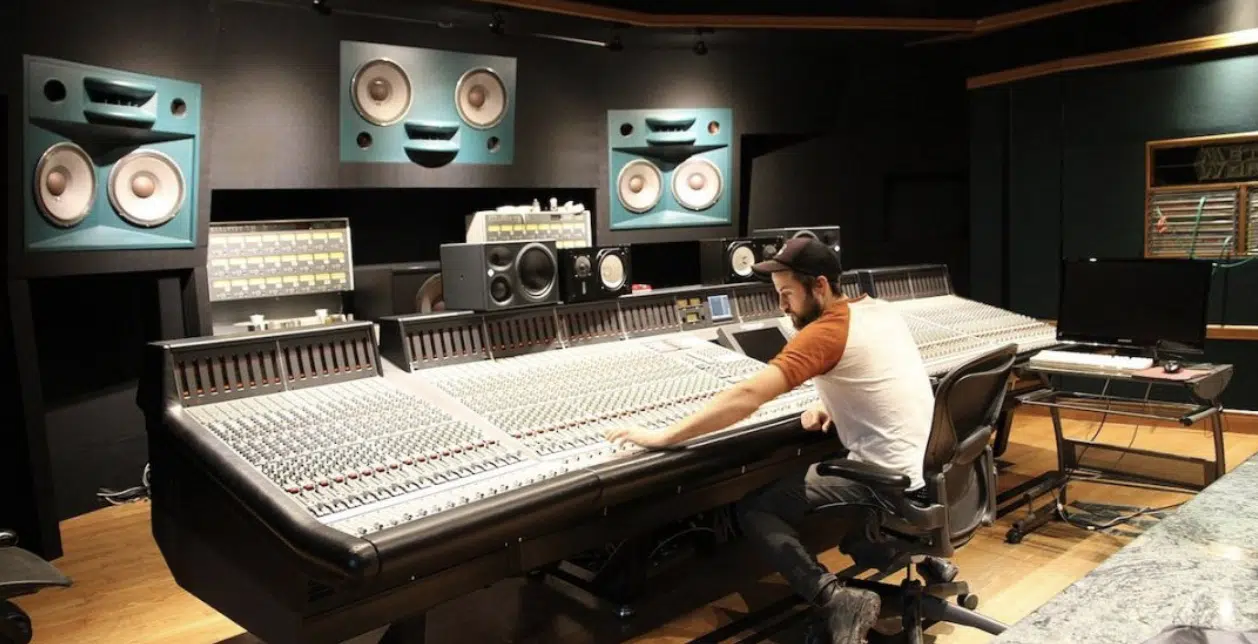
Paying for a professional, or grammy award-winning mastering engineer becomes crucial when the stakes are high.
If you’re planning to distribute your music widely or if it’s intended for commercial release, investing in professional mastering can make a huge difference.
A professional mastering engineer brings a wealth of experience, finely tuned ears, and professional equipment and techniques.
They can add depth, clarity, and consistency to your tracks, elevating them to a professional standard.
The value they add goes beyond simply making the music louder 一 they enhance the emotional impact and ensure the best translation across different playback systems.
Ultimately, deciding whether to go for DIY mastering or hire a pro in the music industry depends on several factors, including:
- Your budget
- The complexity of your music
- Technical proficiency
- Your ambitions/goals for the music
Weighing these factors will guide you towards the decision that best suits your needs and aspirations.
Key Advantages of Collaborating with Mastering Engineers
Now let’s talk about a few key advantages of working with mastering engineers to perfect and refine your music.
-
The Assurance of Unlimited Revisions
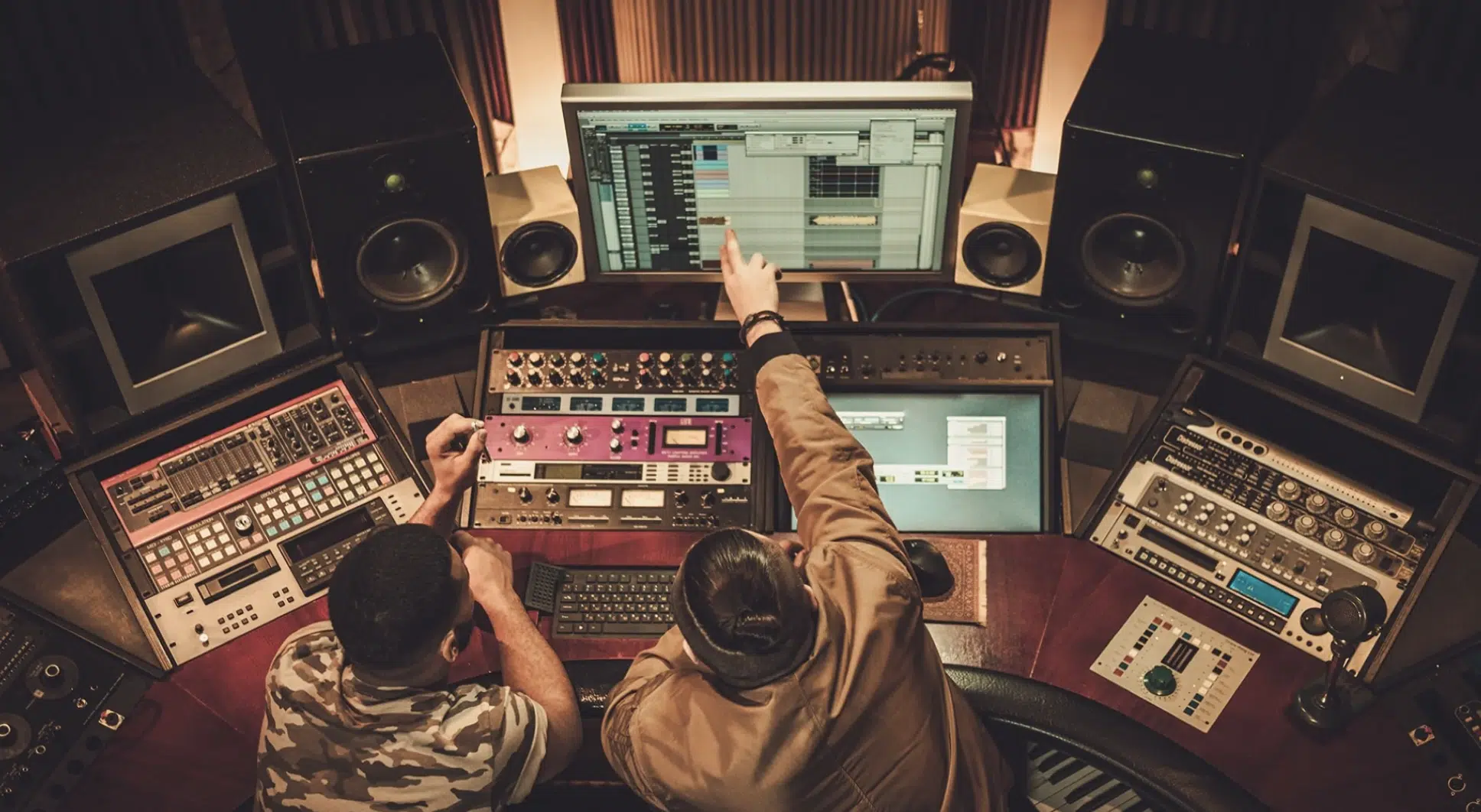
When you work with a professional mastering engineer, they typically offer the assurance of unlimited revisions.
This policy means that the engineer will work on your track until you are fully satisfied with the result.
Unlimited revisions allow for a collaborative process, ensuring the final product aligns perfectly with your vision.
It provides you the freedom to:
- Give feedback
- Request changes/tweaks
- Engage directly in the refining process
This can be especially valuable if you have a specific sound in mind or if your music requires a more delicate touch.
This assurance also speaks to the confidence and dedication of the mastering engineer.
They are committed to delivering the best possible sound and won’t stop until they achieve a master that meets both their high standards and your expectations.
-
The Power of a Free Sample
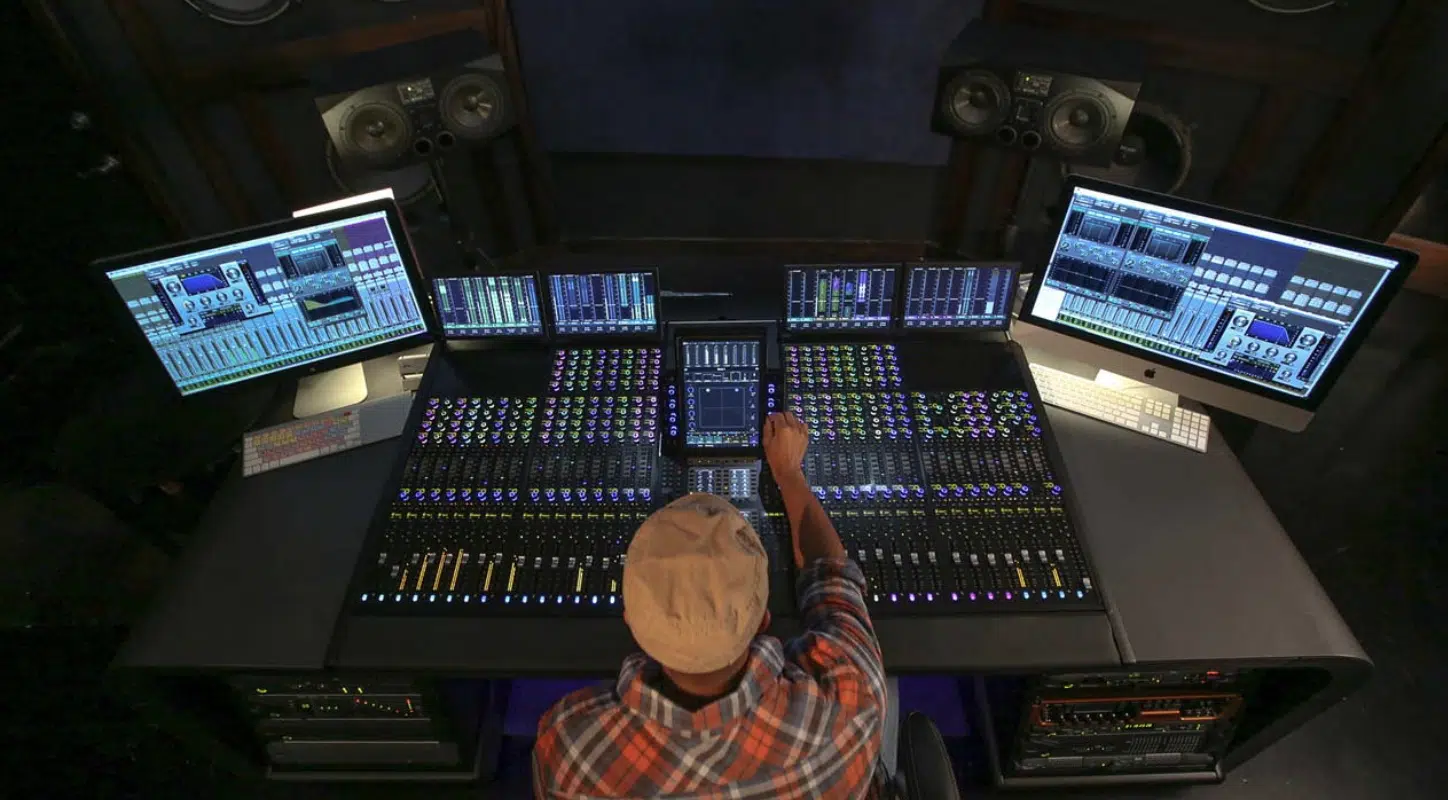
Many mastering engineers offer a free sample of their work.
This allows you to hear how your track would sound after being mastered by them 一 giving you a clear indication of what you can expect from their service.
The power of a free sample lies in its ability to eliminate guesswork.
You can:
- Compare the mastered sample with your original mix
- Understand the changes the engineer made
- Decide whether they enhance your track as per your artistic vision
This lowers the risk of dissatisfaction with the final product.
It also provides an opportunity to evaluate the mastering engineer’s communication and customer service.
If the engineer is responsive, respectful of your vision, and provides a sample that impresses you, chances are you’ve found a professional worth hiring.
How to Choose the Right Mastering Engineer for You
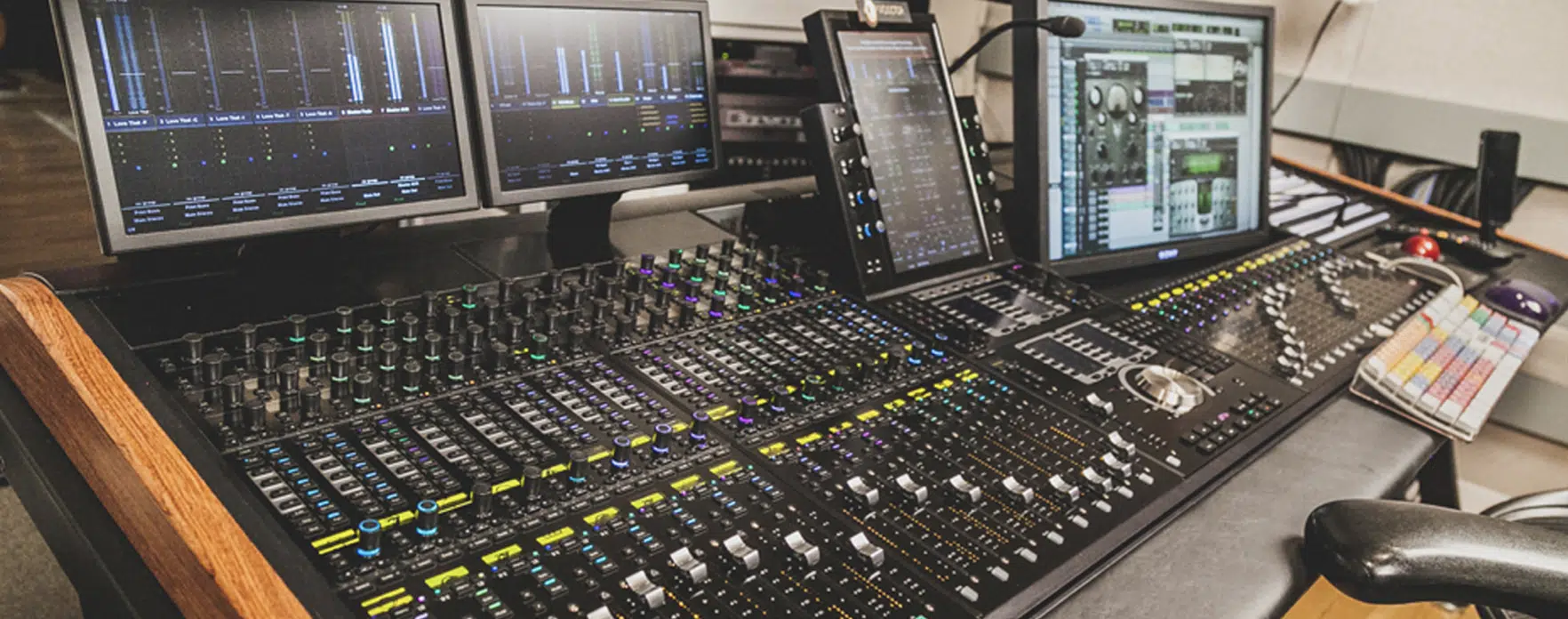
Finally, let’s discuss how to choose the right mastering engineer for your specific needs and overall vision.
When choosing a mastering engineer, you should take into account several factors.
First 一 You should consider their experience and expertise in your genre.
A mastering engineer/audio engineer who understands the nuances of your genre, like hip-hop, trap, techno, rock, etc., will be better equipped to enhance the characteristics that define its sound.
Second 一 You should also consider their technical capabilities.
Do they have the necessary equipment to achieve the sound you want? Can they provide the services you need, such as stem mastering or vinyl mastering, if required?
Third 一 You should consider their fees and your budget. While it can be tempting to go for the cheapest option, remember that you often get what you pay for.
It might be worth investing a bit more in a highly skilled and experienced engineer who can deliver the high-quality sound your music deserves.
Mastering Engineer: Final Thoughts
There you have it, we’ve journeyed through the captivating world of mastering engineers 一 diving into the techniques, process, and essentiality of their role in music production.
It’s clear their expertise and world-class mastering skills bring an undeniable level of polish and power to your tracks.
To truly comprehend the mastery of a professional mastering engineer, we have a fantastic resource for you: these professional, polished, pristine free beatmaker templates.
These templates are examples of perfectly mixed and mastered tracks by some of the industry’s top talent.
You can dive into these gems, explore their intricacies, and tweak them as you like.
It’s an unparalleled opportunity to study the fine details of mastered tracks, giving you a deeper insight into the mastery of a professional mastering engineer.
Remember, music is not just an art form, it’s an entire journey.
And on this journey, understanding the landscape, the people, and the tools available to you can transform your path from a mere walk to a mesmerizing adventure.
As you continue your music production endeavors, never forget the value that a mastering engineer can add to your music.
Use this knowledge to elevate your sound, boost your career, and most importantly, continue creating incredible music that resonates with your audience.
Until next time…







Leave a Reply
You must belogged in to post a comment.